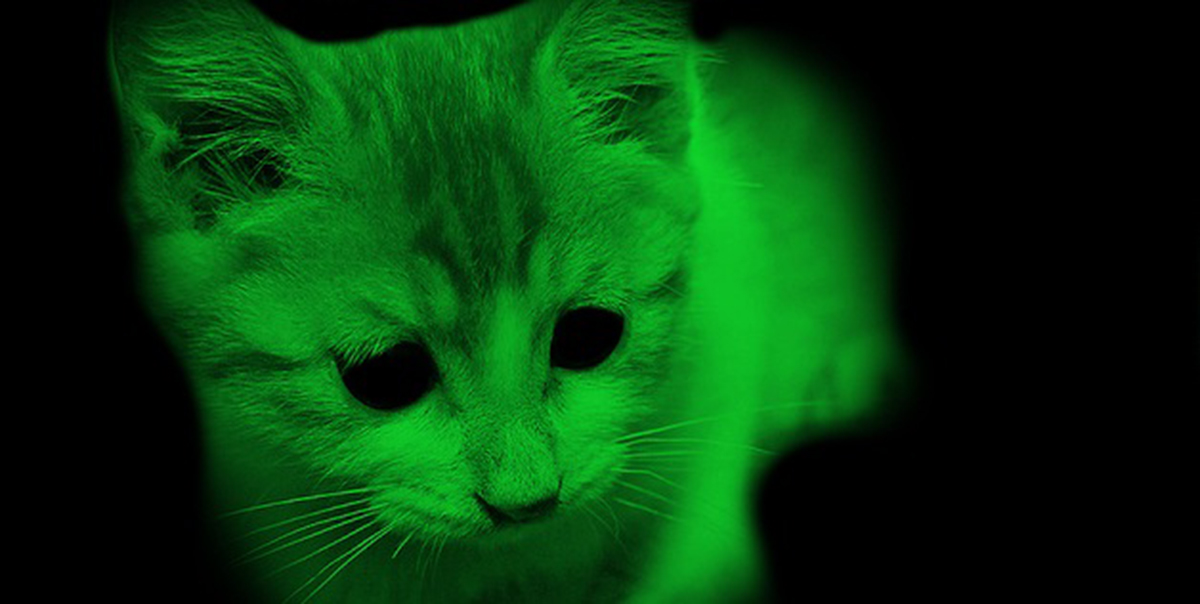Table of Contents
In 2000 creation of genetically modified white rabbit "Alba" captured headlines around the world. Today Dr. Poeschla announced that his research team had used genetic technology to create a green-glowing cat to assist in the eradication of feline HIV.
Veterinarians do not have a readily available test that can tell whether your cat has been exposed to the feline immunodeficiency virus. They only have a test that can tell whether your cat's immune system has responded to either an infection or vaccination. For that reason, just because a cat "tests positive" for FIV is no reason to have it put down if the cat may have been vaccinated. The test for FIV is done in the vet's office and only takes a few minutes.

Does the FIV Vaccine Work?
Scientists report good results with vaccines designed to prevent a single strain of FIV. A vaccine may be 100% effective against one of the strains of the virus. The problem with vaccinating cats against FIV is that there are two major subtypes of the virus, FIV-A and FIV-B, and a vaccination that is completely effective against one strain may be no use at all for another. Still, vaccinating kittens against the infection is likely to give many of the far higher quality of life, and every stray cat should be vaccinated before it is adopted into a home.What Should You Do If Your Cat Develops FIV?
If your cat tests positive for FIV, and you know there has been no vaccination, then the reality is that the cat's immune system has encountered and created antibodies to the virus. Sickness and death of the cat, however, are not immediate.Indoor cats may have many years of healthy and happy life even after they are exposed to this virus. It is important to keep the cat from infecting other healthy cats, but treating infections as soon as they are observed will help support longevity. Eventually, the cat will experience an untreatable infection, but there are cases in which that has only occurred 12 years after contracting the virus.
Just because your cat seems to show signs of FIV, such as sores, diarrhea, and frequent infections, does not mean your cat actually has FIV. Only about 15 percent of cats taken to the vet with possible signs of feline immunodeficiency virus test positive for the disease. And as long as your FIV-positive does not engage in rough play with other cats, chances are that they will not catch the virus, even if they have not yet been vaccinate—although it is better to vaccinate cats for FIV when they are kittens.
Will Glow-in-the-Dark Green Cats Come to the Rescue?
Two of three glow-in-the-dark cats at the Mayo Clinic have been mated and produced eight glow-in-the-dark kittens. As yet, however, the feline immunodeficiency virus researchers have only been perfecting their techniques for the future study of FIV resistance. They have confirmed that the jellyfish genes will make cells much easier to study under the microscope, and that tissue destruction from the virus will be much easier to identify in slides of tissues taken at autopsy.The glow-in-the-dark cats have not, however, yet been exposed to the virus. The researchers do not know whether the monkey genes inserted into the parent cats have made them and their offspring immune. Ethical issues aside, it will be many, many years before all cats, both domestic and feral, carry monkey genes that make them immune to this deadly disease. In the meantime, vaccination and good care are the best answer for maintaining healthy and happy cats.
- Elder JH, Lin YC, Fink E, Grant CK. Feline immunodeficiency virus (FIV) as a model for study of lentivirus infections: parallels with HIV. Curr HIV Res. 2010 Jan, 8(1):73-80. Review.

